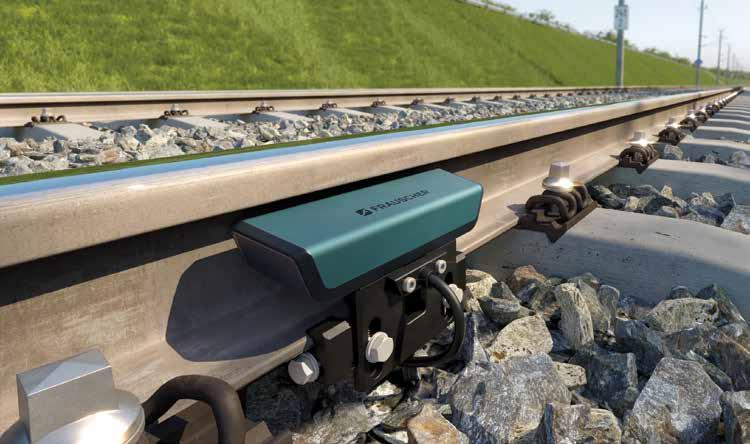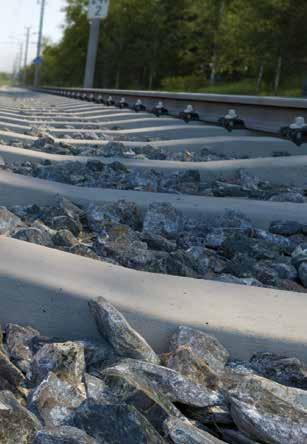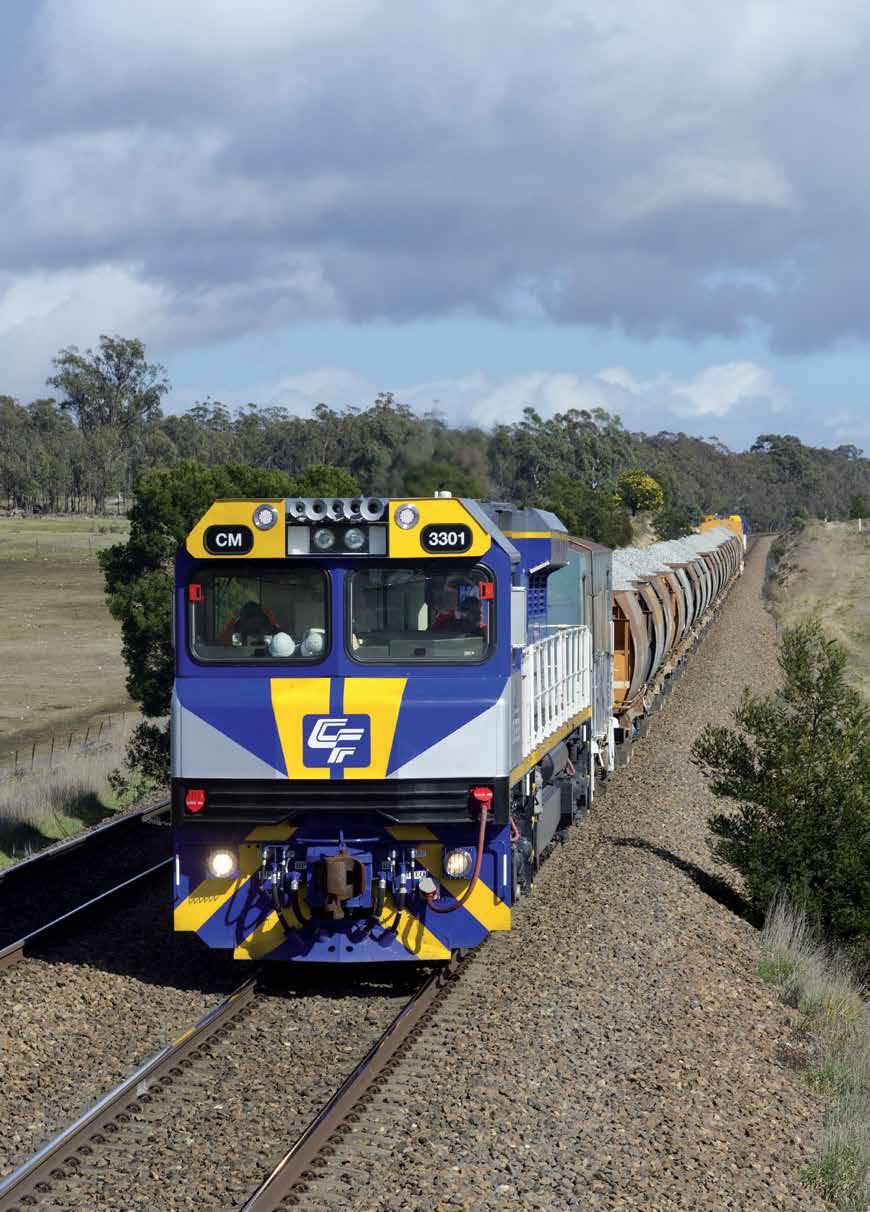
4 minute read
Innovative wheel sensors from Frauscher
from REX Dec 2019
by Prime Group
Innovative train detection solutions
Frauscher Sensor Technology’s innovative new wheel sensors can withstand extreme conditions. functionality is not affected by extreme temperatures, moisture or even floods, mechanical impacts or electromagnetic interference. Additionally, the possibility of mounting these sensors using a rail claw allows for quick installation without drilling –and weakening – the rail. Flexible evaluation for individual requirements The establishment of inductive wheel sensors in different regions and railway segments around the globe means that new areas of use are constantly being discovered. Due to its open, analogue interface, the Frauscher Wheel Sensor RSR110 can be easily and quickly integrated into any infrastructure. Evaluation of the sensor signal can be realised by the system integrator or operator themselves. “This allows for the economic realisation of wheel detection-based applications, such as weighing, lubrication, imaging and others in different areas, for example depots or yards. To provide support if required, Frauscher has developed a Wheel Signal Converter WSC, which converts the analogue signal T HE AUSTRALIAN RAILWAY MARKET has a growing demand for innovative solutions that support them in dealing with increasing requirements. These range from challenging environmental conditions and rising train density on track to the implementation of new technologies and possibilities. At this year’s AusRail PLUS, Frauscher Sensor Technology will present a selection of its products and latest innovations that enable the development of appropriate solutions. Covering global requirements at one place Travelling throughout Australia as a passenger gives you the possibility to experience tropical climate or deserts – as well as snowstorms and heavy rain falls. As inductive wheel sensors mark the state of the art in terms of reliable train detection, they have to maintain maximum availability under all of these conditions. Frauscher has installed a global base of approximately 200,000 wheel sensors – which have proven their appropriate capabilities on all continents. Based on their robust design, their Frauscher Wheel Sensor RSR110 can be easily and quickly integrated into any infrastructure.
The Frauscher Advanced Counter FAdC provides flexible interfaces and high modularity.
into a digital signal and creates the corresponding interface”, Lee Walker, technical support manager at Frauscher Australia said.
Proven axle counter Other Frauscher wheel sensors, such as the RSR180, come in combination with evaluation boards, forming full SIL4 wheel detection systems and axle counters. The Frauscher Advanced Counter (FAdC) provides flexible interfaces and high modularity. It allows for individual solutions to be developed in close collaboration with the customer according


to project specific requirements. Additionally, innovative functionalities, such as Supervisor Track Sections STS and Counting Head Control CHC can increase the system’s availability even when unavoidable external influences occur.
“Connection to a high-performance electronic interlocking is possible both via a customer-specific interface and the freely available Frauscher Safe Ethernet FSE protocol. On that base, centralised architectures and decentralised architectures can be realised, as can a mixture of both. The Frauscher Diagnostic System FDS provides diagnostic data via remote access – which is extremely beneficial for widespread systems. We have realised several projects using the FAdC throughout Australia. We look forward to seizing the opportunity at this year’s AusRail to meet known customers and new interested experts to discuss their experiences and requirements – and how we can support them in meeting them in future”, Walker said.
New intelligent sensors As a highlight, Frauscher will present their new SENSiS system. “We presented SENSiS for the first time at InnoTrans 2018 and were overwhelmed by the great interest and positive feedback. With a newly developed sensor, which works as an intelligent device on the track, this system sets new standards. The evaluation of the sensor signal takes place in the sensor – i.e. directly on the rail. Using a dedicated bus system, digitised data is transferred directly from the SENSiS Detection Point SDP to the SENSiS Processing Unit SPU in the indoor location. The possibility of building ring architectures enables immense savings by reducing the cabling required. In addition, the sensor is able to collect information on temperature and vibration. In the overall package, this system opens up completely new possibilities and represents the latest generation of track vacancy detection against the backdrop of an increasing digitalisation of the railway industry”, Walker said.














